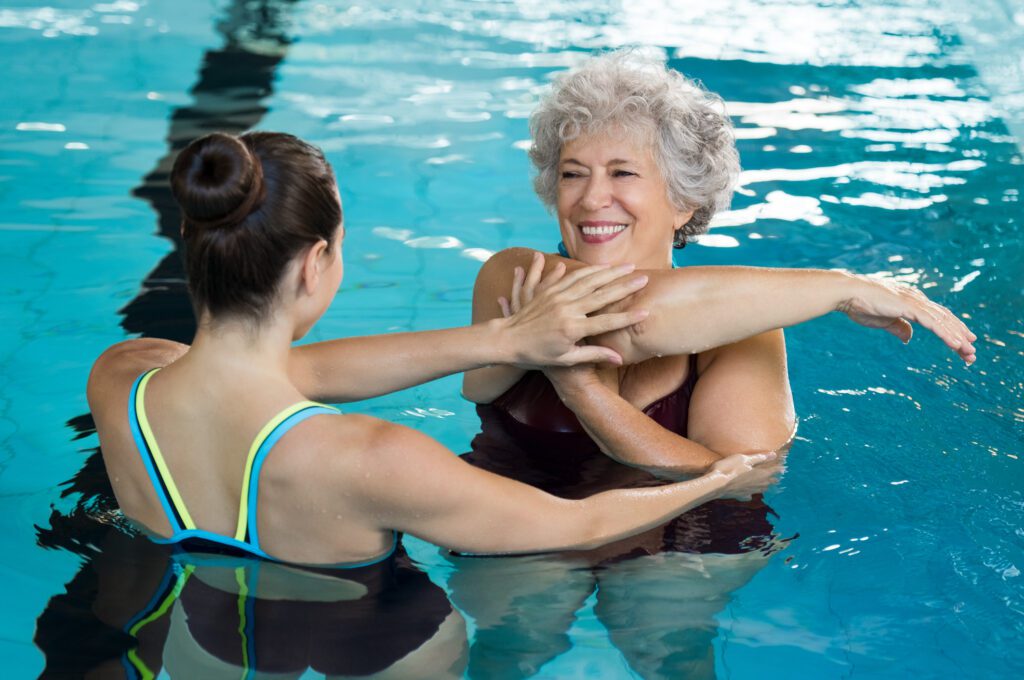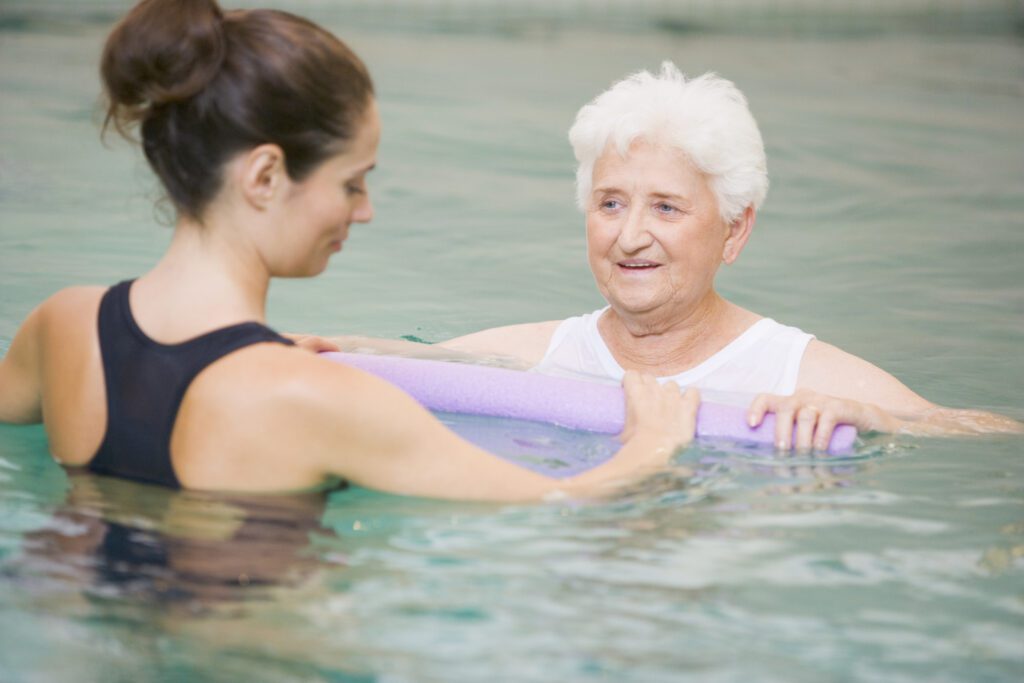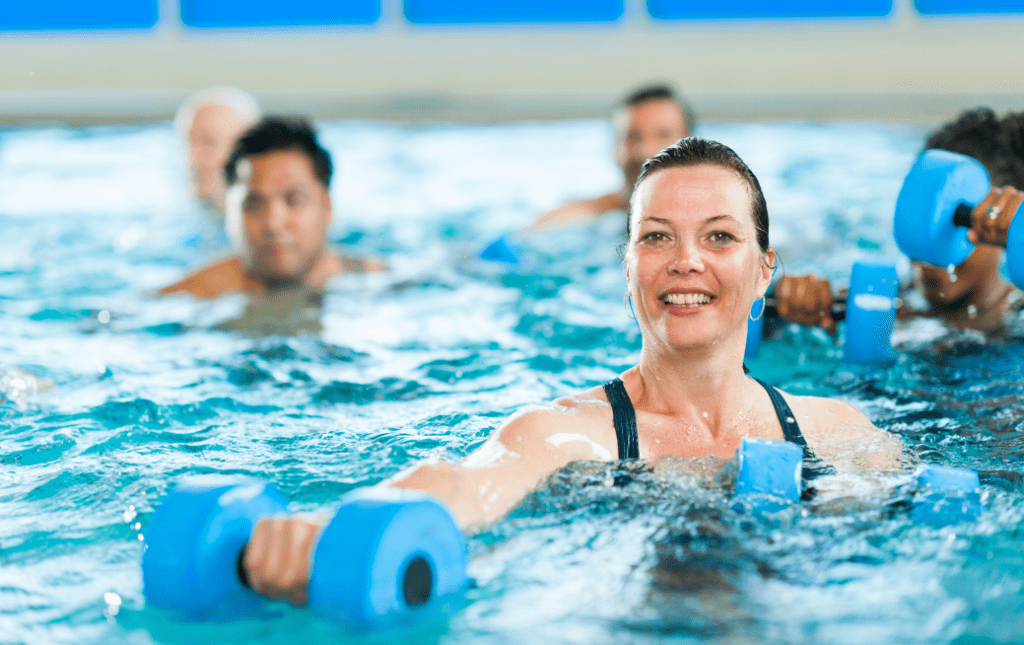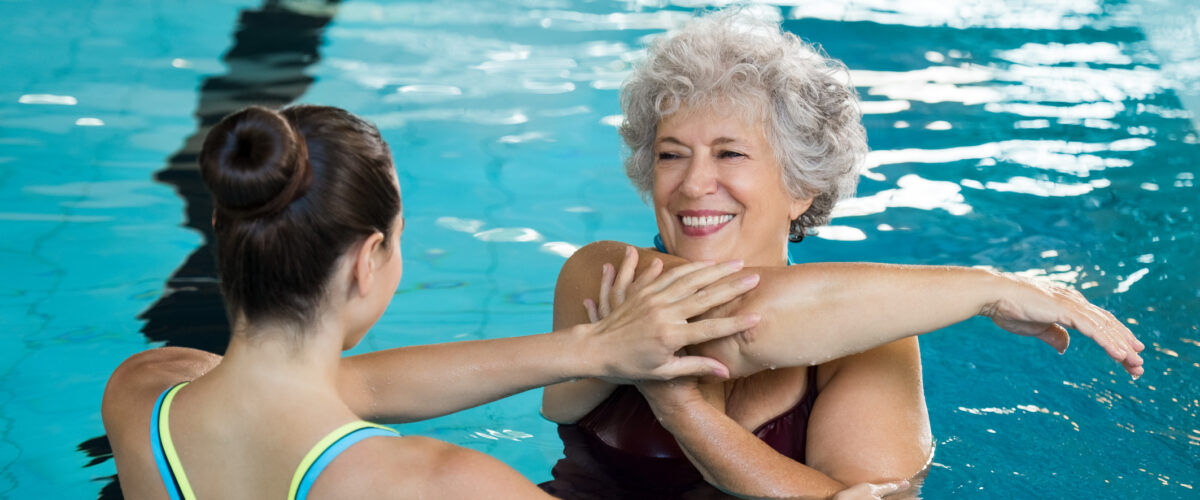Aquatic Therapy (Hydrotherapy): The Use of Water to Aid in Rehabilitation and Fitness

What is Aquatic Therapy (Hydrotherapy)?
Aquatic Therapy (Hydrotherapy) can be described as a range of exercises performed in warm water. These exercises include aerobic and resisted exercises. It uses the physical properties of water to modify many land-based exercises as well as employing unique exercises which can only be performed in the pool.
Aquatic Therapy aims to assist with the rehabilitation of musculoskeletal, cardiopulmonary, neurological and psychological function (1). Some examples include but are not limited to;
Chronic low back pain
Falls and balance prevention
Osteoarthritis
Stroke rehabilitation
Multiple sclerosis
Post surgical rehabilitation
General fitness & mobility
+ many more
Our qualified physiotherapist can develop a water-based exercise program to aid in the rehabilitation of these conditions.

Theory behind therapy in water
Aquatic therapy (hydrotherapy) uses a number physical principles to create purposeful and effective water-based exercises:
1) Compressive forces created by the water
2) Multi directional forces created by the motion of the water
3) Buoyancy – the upward pressure of water ie. what makes objects float
Aquatic therapy also makes use of warm water which assists with flexibility, circulation and muscle activation (2).

Why the hype? How does it help?
Aquatic Therapy (hydrotherapy) provides an environment that is lower impact while still challenging the cardiovascular, musculoskeletal and respiratory system as well as releasing endorphins which are great for our mental health (1).
Compressive forces and warmth from the water is beneficial for lower limb swelling, improvements in circulation, cardiovascular health and is also effective in pain reduction (2).
Forces created by the movement of water can be used much like using weights at a gym. Because of this resistance applied, aquatic therapy helps to improve overall muscular strength and muscular endurance (of the trunk, lower body and upper body muscles) as well as aerobic endurance (improving our heart and lung fitness) (1).
Our tendency to float in water reduces gravitational forces and stressors on joints. Movement is therefore easier and allows our joints to move through a greater range of movement, improving joint flexibility and strength (1).
All these principles combined means that aquatic therapy can aid in improving endurance, strength, mental health, quality of life and reduce injury symptoms, making it a great alternative to many other forms of exercises.

How do I get involved?
At Continuum Physiotherapy we offer aquatic therapy (hydrotherapy) sessions for our patient’s recovering from injuries and chronic health conditions. Additionally, we also offer aquatic therapy sessions for those not necessarily recovering from an injury however looking to improve their strength, fitness and quality of life. Our aquatic therapy physiotherapist Lauren Dowse has many years experience as a physiotherapist and thoroughly enjoys helping her patients in their hydrotherapy sessions.
Our sessions are either 30 minutes or 1 hour sessions and are run each Monday at Aquarena Aquatic and Leisure Center in Templestowe Lower.
All our sessions at present are 1 on 1 with the first initial aquatic therapy session focused on establishing your individual needs and goals, and develop your individual program. This also gives you a chance to familiarise yourself with the pool and available equipment.
Some people benefit from frequent weekly 1:1 sessions; whereas others may benefit from a program written following their session and can be performed independently with review sessions spaced out to update and progress their program accordingly.
Are you interested in participating in Aquatic Therapy? Does Aquatic Therapy sound like a fantastic option to address your condition and improve your health?
Please call us directly on 9455 1177 or email us info@continuumphysiotherapy.com.au to book your 1:1 Hydrotherapy Assessment today.
Alternatively, book in a FREE 15 minute phone call with one of our friendly physiotherapists today to discuss your injury, condition or niggle further and the therapeutic pathway that may be recommended for you.
REFERENCES
- Aquatic Physiotherapy Level 1 Manual (2023). APA Aquatic National Group. Melbourne, Australia.
2. Hall J. Swinkles A. Briddon J AND Mccabe C. Does aquatic exercise relieve pain in adults with neurologica or musculoskeletal disease? A systematic review and Meta-analysis of randomized controlled trials. Arch Phys Med Rehabil 2008: 89; 873-883.


